Best Rack Server for Virtualization
Content:
In the ever-evolving landscape of IT infrastructure, virtualization has emerged as a transformative technology, revolutionizing the way organizations deploy, manage, and scale their computing resources. At the heart of virtualization lies the rack server – a fundamental building block that forms the backbone of modern data centers.
However, the success of virtualization hinges upon selecting the right rack server – one that not only meets the performance requirements of virtualized workloads but also offers scalability, reliability, and management capabilities tailored to the demands of modern data centers.
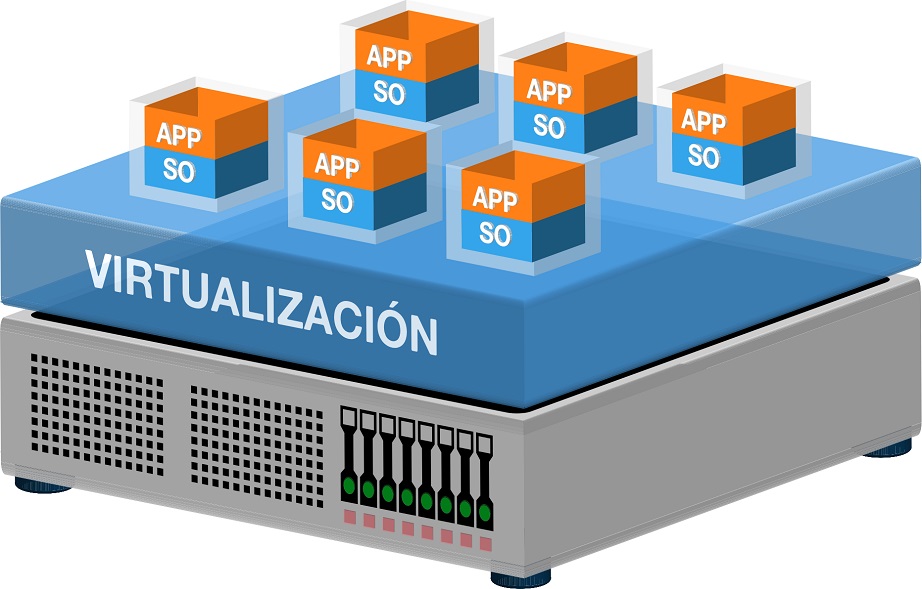
In this guide, we delve into the intricacies of choosing the best rack server for virtualization, exploring the key criteria that IT professionals must consider when evaluating server options. From performance and scalability to reliability and total cost of ownership (TCO), we provide insights to help organizations navigate the complexities of server selection and build a resilient infrastructure optimized for virtualization.
Selecting Rack Servers for Virtualization
In the dynamic landscape of modern data centers, the selection of rack servers for virtualization is a critical decision that can significantly impact the performance, scalability, and overall efficiency of IT infrastructure. Before diving into specific server models, it's essential to grasp the fundamental criteria that drive the selection process:
-
Performance Requirements: Virtualization places heavy demands on server resources such as CPU, RAM, storage, and networking. The chosen rack server must have sufficient processing power and memory capacity to support multiple virtual machines (VMs) simultaneously without compromising performance.
-
Scalability: As business needs evolve and workloads increase, the server infrastructure should be able to scale seamlessly. Scalable rack servers allow for the expansion of compute, storage, and memory resources without disruption to existing virtualized environments.
-
Reliability and Redundancy: Virtualized environments are often mission-critical, requiring high availability and fault tolerance. Rack servers equipped with redundant components such as power supplies, fans, and storage controllers enhance reliability and minimize downtime in the event of hardware failures.
-
Management and Monitoring Capabilities: Efficient management and monitoring are essential for overseeing virtualized environments. Remote management tools, comprehensive monitoring software, and integration with virtualization platforms streamline administration tasks and ensure optimal performance.
-
Total Cost of Ownership (TCO): While upfront costs are a consideration, TCO encompasses the entire lifecycle cost of the server, including maintenance, power consumption, and potential upgrades. Choosing a rack server with a favorable TCO ensures long-term affordability and return on investment.
By considering these key criteria, IT professionals can make informed decisions when selecting rack servers for virtualization, laying the foundation for a robust and scalable infrastructure that meets the demands of modern business environments.
Dell Rack Server Options

When it comes to rack server options for virtualization, Dell stands out as a leading provider, offering a range of powerful and versatile solutions designed to meet the diverse needs of modern data centers. Here, we explore three exemplary Dell PowerEdge rack servers that excel in supporting virtualized environments:
Dell PowerEdge R740
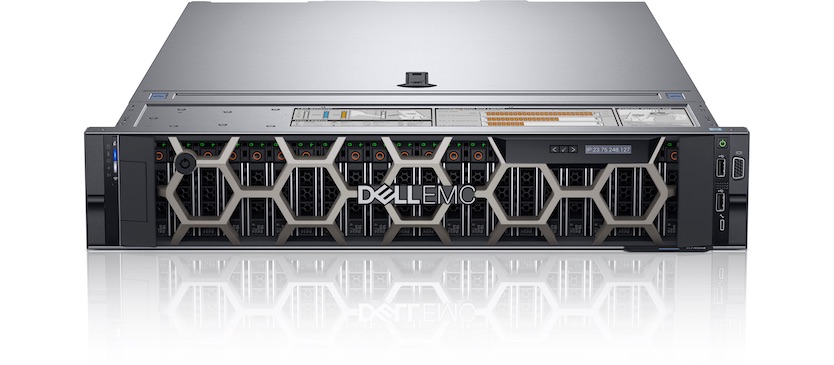
The Dell PowerEdge R740 is a powerhouse designed to deliver exceptional performance and scalability for virtualization workloads. With support for dual Intel Xeon Scalable processors and up to 3TB of DDR4 memory, the R740 provides the horsepower needed to run multiple VMs with ease. Its flexible storage options, including support for NVMe drives, ensure high-speed access to data, while redundant power supplies and advanced management tools enhance reliability and ease of administration. Whether it's consolidating virtualized applications, running VDI environments, or powering cloud infrastructures, the PowerEdge R740 is a versatile solution that excels in demanding virtualization environments.
Key Specs:
-
Processors: Dual Intel Xeon Scalable processors
-
Memory: Up to 3TB of DDR4 memory
-
Storage: Flexible storage options, including support for NVMe drives
-
Form Factor: 2U
-
Redundancy: Redundant power supplies
-
Management: Advanced management tools
Dell PowerEdge R640

Compact yet powerful, the Dell PowerEdge R640 is tailor-made for virtualization deployments where space is at a premium. Despite its small footprint, the R640 packs a punch with support for dual Intel Xeon Scalable processors and up to 3TB of DDR4 memory. Its dense, 1U form factor makes it ideal for edge computing or space-constrained data centers without compromising on performance or scalability. With features like hot-plug SSDs, redundant cooling, and comprehensive management capabilities, the PowerEdge R640 is a versatile and efficient solution for virtualized environments with limited space.
Key Specs:
-
Processors: Dual Intel Xeon Scalable processors
-
Memory: Up to 3TB of DDR4 memory
-
Storage: Hot-plug SSDs
-
Form Factor: 1U
-
Redundancy: Redundant cooling
-
Management: Comprehensive management capabilities
Dell PowerEdge R940
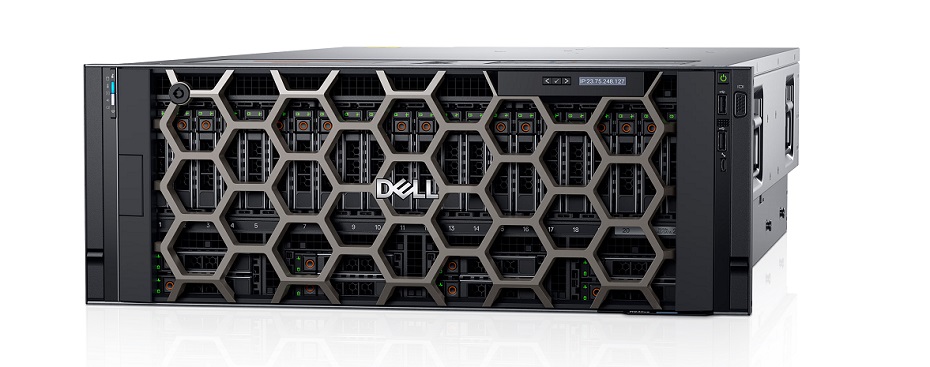
For organizations with mission-critical virtualization workloads, the Dell PowerEdge R940 offers unparalleled performance, reliability, and scalability. With support for up to four Intel Xeon Scalable processors and a staggering 6TB of memory, the R940 is built to handle the most demanding applications and workloads with ease. Its high-density design allows for maximum consolidation of VMs, while redundant power supplies, hot-plug drives, and advanced management features ensure continuous uptime and seamless operation. Whether it's running large-scale virtualized databases, enterprise applications, or in-memory analytics, the PowerEdge R940 delivers the power and reliability needed to support critical business operations.
Key Specs:
-
Processors: Up to four Intel Xeon Scalable processors
-
Memory: Up to 6TB of DDR4 memory
-
Storage: Hot-plug drives
-
Form Factor: 3U
-
Redundancy: Redundant power supplies
-
Management: Advanced management features
In summary, Dell's PowerEdge rack server lineup offers a range of options tailored to the unique requirements of virtualization, providing organizations with the performance, scalability, and reliability needed to optimize their virtualized environments and drive business success.
HP Rack Server Options

HP, renowned for its reliability and innovation, offers a suite of rack servers tailored to excel in virtualized environments. Below, we explore three exemplary HP ProLiant rack servers renowned for their performance, scalability, and robust features:
HPE ProLiant DL380 Gen10
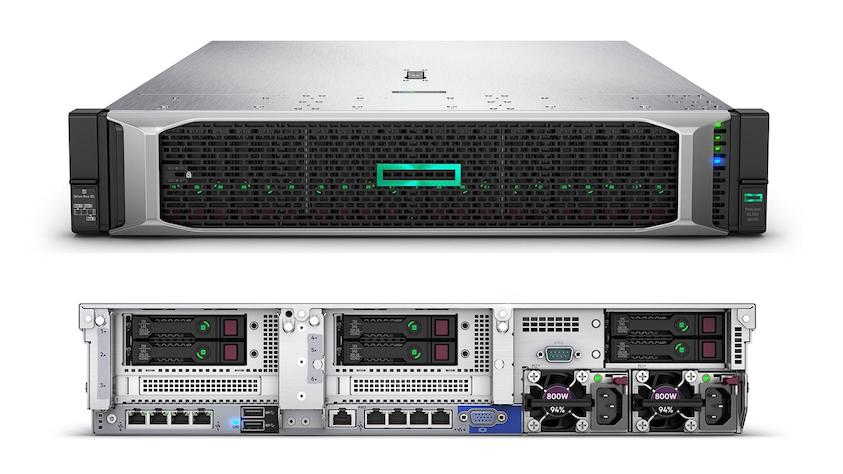
The HP ProLiant DL380 Gen10 is a versatile workhorse designed to deliver exceptional performance and reliability for virtualization workloads. With support for dual Intel Xeon Scalable processors and up to 3TB of DDR4 memory, the DL380 Gen10 ensures smooth operation of multiple VMs simultaneously. Its flexible storage options and advanced RAID capabilities provide high availability and data protection. With redundant power supplies, hot-swappable components, and comprehensive management tools, the DL380 Gen10 is a reliable and scalable solution for virtualized environments of all sizes.
Key Specs:
-
Processors: Dual Intel Xeon Scalable processors
-
Memory: Up to 3TB of DDR4 memory
-
Storage: Flexible storage options with advanced RAID capabilities
-
Form Factor: 2U
-
Redundancy: Redundant power supplies
-
Management: Comprehensive management tools
HPE ProLiant DL360 Gen10
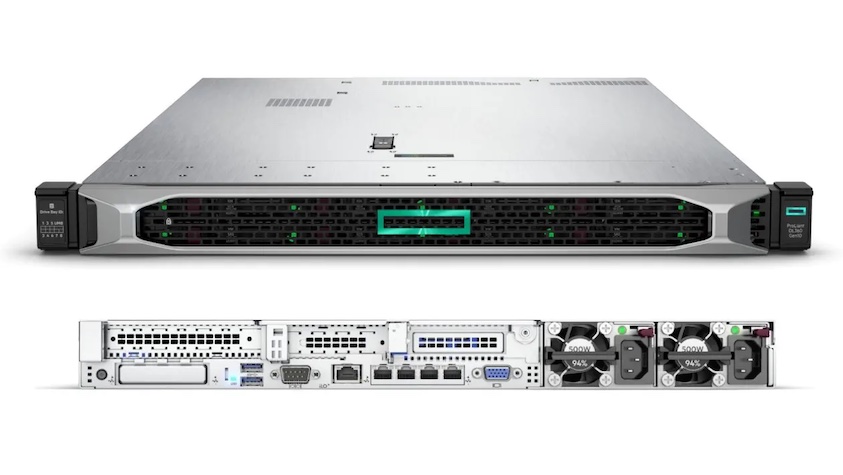
Compact yet powerful, the HP ProLiant DL360 Gen10 is ideal for organizations seeking high performance in a space-saving form factor. With support for dual Intel Xeon Scalable processors and up to 3TB of DDR4 memory, the DL360 Gen10 packs a punch in a 1U chassis. Its energy-efficient design and advanced cooling technologies make it suitable for edge computing or data centers with limited space and cooling capacity. With features like hot-plug drives, redundant power supplies, and remote management capabilities, the DL360 Gen10 offers reliability and flexibility for virtualization deployments in diverse environments.
Key Specs:
-
Processors: Dual Intel Xeon Scalable processors
-
Memory: Up to 3TB of DDR4 memory
-
Storage: Hot-plug drives
-
Form Factor: 1U
-
Redundancy: Redundant power supplies
-
Management: Remote management capabilities
HPE ProLiant DL560 Gen10

Built for scalability and performance, the HP ProLiant DL560 Gen10 is an ideal choice for organizations with large-scale virtualization deployments. With support for up to four Intel Xeon Scalable processors and a staggering 6TB of DDR4 memory, the DL560 Gen10 delivers unparalleled compute power and memory capacity. Its high-density design allows for maximum consolidation of VMs, while redundant components and advanced fault tolerance features ensure continuous operation and data integrity. Whether it's running virtualized databases, business-critical applications, or VDI environments, the DL560 Gen10 offers the scalability and reliability needed to support demanding workloads.
Key Specs:
-
Processors: Up to four Intel Xeon Scalable processors
-
Memory: Up to 6TB of DDR4 memory
-
Storage: Flexible storage options
-
Form Factor: 2U
-
Redundancy: Redundant components
-
Management: Advanced fault tolerance features
In summary, HP's ProLiant rack server lineup offers a range of options tailored to the unique requirements of virtualization, providing organizations with the performance, scalability, and reliability needed to optimize their virtualized environments and drive business success.
Conclusion
In the fast-paced world of IT infrastructure, the selection of the right rack server for virtualization is paramount to the success of modern organizations. Throughout this guide, we've explored the essential criteria for choosing the best rack server, examined exemplary models from both Dell and HP, and highlighted their key specifications.
As you embark on your journey to select the best rack server for virtualization, it's important to consider factors such as performance requirements, scalability, reliability, management capabilities, and total cost of ownership. By carefully evaluating these criteria and consulting with experts, organizations can make informed decisions that align with their specific business objectives and IT requirements.
In conclusion, the right rack server is not just a piece of hardware — it's the cornerstone of a resilient and efficient virtualized infrastructure that drives innovation, fosters growth, and enables organizations to stay ahead in today's competitive landscape. Choose wisely, invest strategically, and unlock the full potential of virtualization to propel your business forward into the digital future.